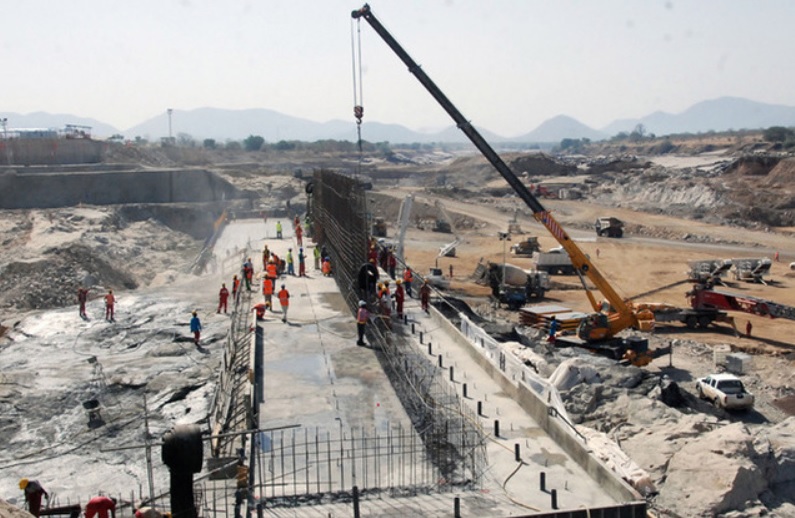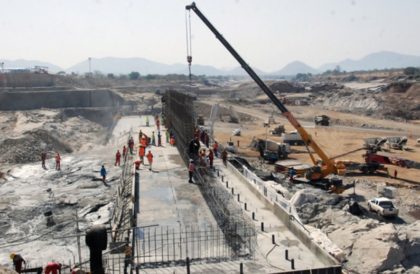
Ethiopia rejects Egypt’s plan for filling, operating $4 billion Renaissance Dam
 The Ethiopian government has rejected outright Egypt’s proposal on the filling and operating of the $4 billion hydropower dam, the Great Ethiopian Renaissance Dam (GERD), being constructed by the Horn of Africa country on the Nile.
The Ethiopian government has rejected outright Egypt’s proposal on the filling and operating of the $4 billion hydropower dam, the Great Ethiopian Renaissance Dam (GERD), being constructed by the Horn of Africa country on the Nile.
Addressing a press conference in Ethiopia’s capital Addis Ababa Wednesday, Sileshi Bekele, minister for Water, Irrigation and Electricity described Egypt’s plan, including the volume of water it wants the dam to release annually, as “inappropriate”.
Speaking to local media, Sileshi said that Egypt has proposed its own plans, which suggested the filling of the dam’s reservoir to be conducted within seven years period of time and a minimum guaranteed release of 40 billion meter cubic of water every year as well as demand to maintain High Aswan Dam at 165 meter above sea level, the Addis Standard reported.
Ethiopia also rejected the 40 BMC annual release of water on the bases that “such stringent condition of annual flow release is not acceptable to Ethiopia as it prolongs the filling of the GERD,” the Addis Standard reported referring to a classified document it obtained.
The document, detailing Ethiopia’s position on the demands made by Egypt, states that Ethiopia rejects Egypt’s demand “to maintain High Aswan Dam (HAD) at 165 meter above sea level”, as “this request is technically impractical and is tantamount to agreeing to hold the operation of the GERD hostage to Egyptian water use downstream.”
Besides, since Ethiopia cannot control Egyptian water use/withdrawal from HAD, agreeing to this demand means ending up in perpetual ‘water debt,’ according to the document.
“The request by Egypt is not practical and, therefore, Ethiopia outright rejects it,” the document reads.
Egypt, which relies almost totally on the Nile for irrigation and drinking water, fears the dam will restrict Nile River flows. Besides, Egypt claims it has “historic rights” to the river, guaranteed by treaties from 1929 and 1959.
Egypt, Ethiopia and Sudan held a meeting Sunday and Monday but failed to address the dam’s technical aspects and was limited to discussing procedural aspects and deliberations on the meeting’s agenda without discussing substantive issues, due to Ethiopia’s refusal to discuss Egypt’s proposal towards Ethiopia and Sudan, Egypt’s Ministry of Water Resources and Irrigation said in a statement.
In light of this stumble, an urgent meeting of the independent scientific group will be held in Khartoum at the end of September to discuss the three countries’ proposal and the ministries of water resources from the three countries will convene on October 4-5 to approve the rules of filling and operating the Renaissance Dam, the statement added.
